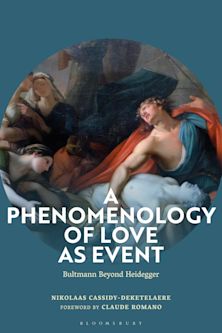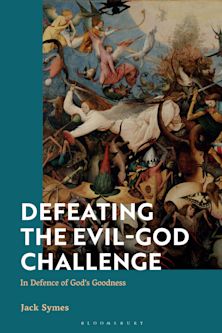- Home
- ACADEMIC
- Philosophy
- Philosophy of Religion
- Goodness, God, and Evil
Goodness, God, and Evil
This product is usually dispatched within 1 week
- Delivery and returns info
-
Free US delivery on orders $35 or over
You must sign in to add this item to your wishlist. Please sign in or create an account
Description
Most contemporary versions of moral realism are beset with difficulties. Many of these difficulties arise because of a faulty conception of the nature of goodness. Goodness, God, and Evil lays out and defends a new version of moral realism that re-conceives the nature of goodness.
Alexander argues that the adjective 'good' is best thought of as an attributive adjective and not as a predicative one. In other words, the adjective 'good' logically cannot be detached from the noun (or noun phrase) that it modifies. It is further argued that this conception of the function of the adjective implies that recent attempts to provide necessary a posteriori identities between goodness and something else must fail.
The convertibility of being and goodness, the privation theory of evil, a denial of the fact-value distinction, human nature as the ground of human morality and even a novel argument for the existence of God are some of the implications of the account of goodness that Alexander offers.
Table of Contents
Introduction
Chapter One: Contemporary Moral Realism: Problems with a Common Assumption
1. Moral Realism: The Contemporary Account
2. From Moore's OQA to A Posteriori Moral Naturalism
3. Adams's Moral Supernaturalism
Chapter Two: Geach's Claim: Explication and Defense
1. Geach's Argument
2. Some Corollaries
3. Objections
Chapter Three: Some Metaethical Implications of the Attributive Account of Good
1. In Defense of the No Property Claim
2. Second Implication of Attributive Account: Goodness, Natures, and Functions
3. Third Implication of Attributive Account: Good Humans
Chapter Four: The Function of 'Good' and Good Functions
1. Etiological and Statistical Theories of Function
2. Normative Theories of Functions
3. Answering Objections to TMR with the Normative Theory of Functions
Chapter Five: From the Attributive Account to God
1. From Attributive Account to Convertibility of Being and Goodness
2. In Defense of the Privation Theory of Evil
3. Arguments for God's Existence
4. Problems of Evil
Bibliography
Product details
| Published | May 24 2012 |
|---|---|
| Format | Hardback |
| Edition | 1st |
| Extent | 168 |
| ISBN | 9781441138552 |
| Imprint | Continuum |
| Dimensions | Not specified |
| Series | Continuum Studies in Philosophy of Religion |
| Publisher | Bloomsbury Publishing |
About the contributors
Reviews
-
"David Alexander has written a clear, thoughtful, and timely defense of conclusions well worth pressing in the current philosophical climate. His discussion of the thesis that 'good' is attributive is one of the best available. And his development of this thesis with an eye on belief in God is just excellent. His book should be read by anyone with a serious interest in moral philosophy and/or philosophy of religion." -- Brian Davies. Professor of Philosophy, Fordham University, USA



































